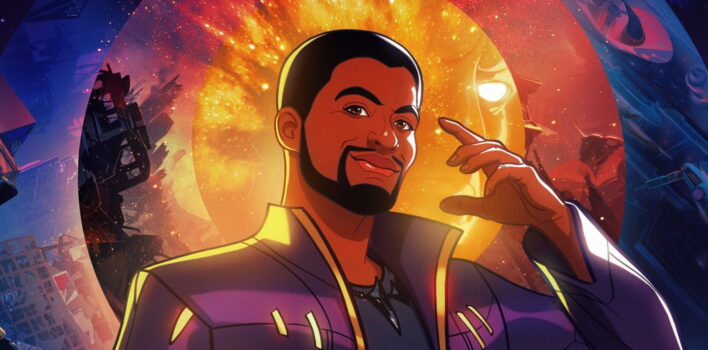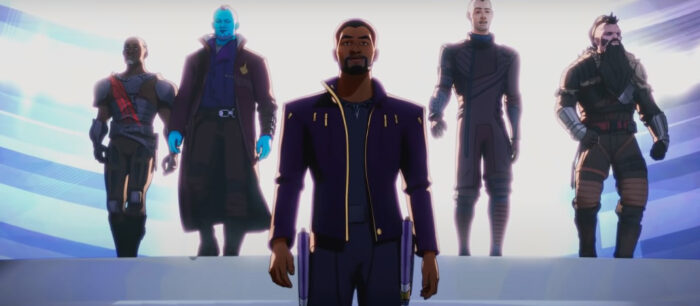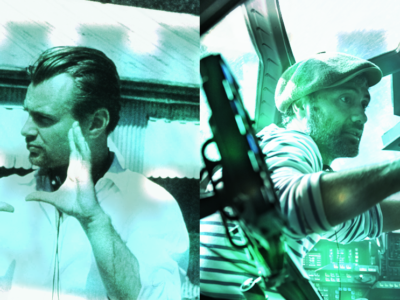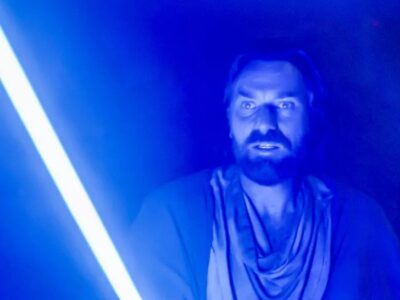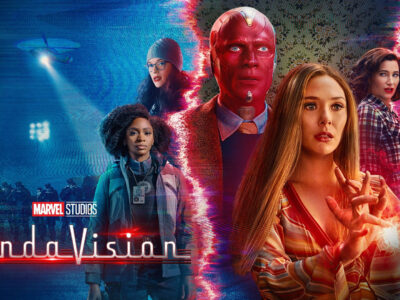The Unavoidable Allure of Alternate Universes: Right Place, Right Time
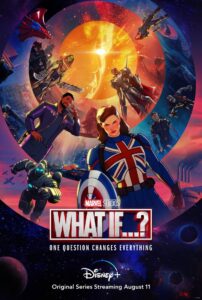 Alternate universe stories give us a chance to see what the characters in the narratives we love are really made of. Strip away the trappings of their circumstances, put them in different hardships and opportunities, and what do they become? On the surface, it seems like they change completely. But if you watch closely, the truth is more complicated.
Alternate universe stories give us a chance to see what the characters in the narratives we love are really made of. Strip away the trappings of their circumstances, put them in different hardships and opportunities, and what do they become? On the surface, it seems like they change completely. But if you watch closely, the truth is more complicated.
Episode 2 of What If… really shows that off in spades.
Spoiler Alert: Plot and ending spoilers for season 1, episode 2 of Marvel’s What If… follow.
The big surprise of episode 2 was Thanos’ dramatic moral turn; from intergalactic warlord and would-be mass murderer to valued team member and “merry man,” the Thanos who was won over by T’Challa’s arguments seems like a far cry from the one we’ve known for the past nine years of the mainline MCU.
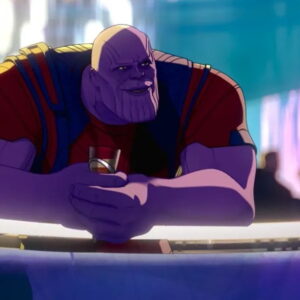 Episode 2 itself goes to great pains to show how he’s not all that different, though; the MCU’s Thanos has always been on a quest to save the universe, he simply pursues this goal through dubious and deadly means. In What If…, he’s not so much changed as redirected.
Episode 2 itself goes to great pains to show how he’s not all that different, though; the MCU’s Thanos has always been on a quest to save the universe, he simply pursues this goal through dubious and deadly means. In What If…, he’s not so much changed as redirected.
And the same is true for the other adoptive father fighting for his child, Yondu: a philanthropist and freedom fighter explicitly in the vein of Robin Hood stands where once a mercenary outlaw did in the Guardians of the Galaxy films we’re familiar with. But even there (particularly in the second one) we see a softer side of the man who cannot say no to his adopted son, no matter who that adopted son is. We see a man who wants what is right and cannot abide harming the innocent, though he won’t bat an eye at profiting along the way.
Nebula, too, has had a dramatic makeover; instead of the hollow-eyed murder cyborg, she’s a shimmering femme fatale. Probably due to the dramatic change in her adopted father Thanos, her tale is much less heartbreaking than the one we’re more familiar with. But still at her core is the same girl who desperately wants some semblance of a functional family, and whose rebuffed attempts at getting it leave her bitter toward the person she secretly loves.
But all of these changes have at their center the presence of T’Challa, prince of Wakanda; you can remove the man from his kingdom, but you cannot remove the king from the man. Freed from the generations of insular politics and fear of the outside, episode 2’s T’Challa is able to help others in need with a zeal that his prime universe counterpart had only just begun to explore by the end of 2018’s Black Panther.
It’s interesting how the first two episodes of What If… show us universes that end up being markedly better for most of their inhabitants than the universe we’re more familiar with. In episode 1, the universe saw a Bucky Barnes who never became the Winter Soldier and a Tony Stark who grew up with his parents, making his life more stable and presumably causing fewer villains to arise. And in episode 2, we see a universe where the infamous snap never occurred, along with the untold other innocents that Thanos would have killed; where, it seems, the people of Wakanda entered the galactic stage and probably also the broader global stage on Earth years earlier.
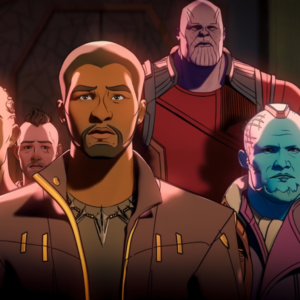 All because of the actions and presence of a single person.
All because of the actions and presence of a single person.
A thought-provoking meme has been making the rounds on social media recently; “when people talk about time traveling, they worry about radically changing the future by making a small change in the past,” its simple words on a solid background note; “but barely anyone in the present really thinks they can radically change the future by doing something small now.”
Watching What If… with the context of thirteen years of Marvel history gives that little truism a new spin; alternate universes show us how much better the universe can be when one person acts differently in a particular moment, but barely anyone in this universe really thinks the world can be better by acting differently in the right moment.
Some might put forth a theological argument that such a viewpoint is correct; that our universe is the only universe that can exist, because “the lot is cast into the lap, but its every decision is from the LORD.” (Proverbs 16:33, ESV) The world is guided not by man’s free will but by God’s goodness and glory, they might say, and so if there was a world where something turned out better, we would be in it now.
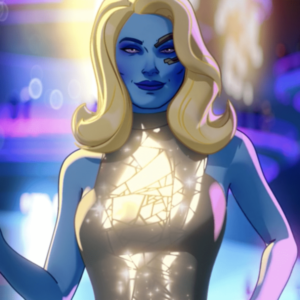 I can’t speak to the presence of alternate universes in reality, but I can say that while God’s control of the universe is not in doubt…neither is His people’s responsibility to make it better. 2 Peter 2:9 commissions us to be “a chosen race, a royal priesthood, a holy nation, a people for his own possession, that you may proclaim the excellencies of him who called you out of darkness into his marvelous light.” This is a renewal and expansion of God’s call to His people in the Old Testament: “Build houses and live in them; plant gardens and eat their produce. Take wives and have sons and daughters; take wives for your sons, and give your daughters in marriage, that they may bear sons and daughters; multiply there, and do not decrease. But seek the welfare of the city where I have sent you into exile, and pray to the Lord on its behalf, for in its welfare you will find your welfare.” (Jeremiah 29:5-7).
I can’t speak to the presence of alternate universes in reality, but I can say that while God’s control of the universe is not in doubt…neither is His people’s responsibility to make it better. 2 Peter 2:9 commissions us to be “a chosen race, a royal priesthood, a holy nation, a people for his own possession, that you may proclaim the excellencies of him who called you out of darkness into his marvelous light.” This is a renewal and expansion of God’s call to His people in the Old Testament: “Build houses and live in them; plant gardens and eat their produce. Take wives and have sons and daughters; take wives for your sons, and give your daughters in marriage, that they may bear sons and daughters; multiply there, and do not decrease. But seek the welfare of the city where I have sent you into exile, and pray to the Lord on its behalf, for in its welfare you will find your welfare.” (Jeremiah 29:5-7).
And the means by which He calls us to do this? Not through battle or a mad grab for power. Not through clout or winsome words from the largest stage. Instead, it’s through being a priesthood, connecting God to His people; through building homes, being a part of the city where we’ve been placed and building it up; through words spoken; even simply through our presence.
Imagine how bizarre this would’ve sounded to the people Jeremiah was writing to in Babylon! Don’t seek your own riches and contentment and glory, he was saying. Don’t even try to increase your nation’s coffers. Seek the good of these others, your enemies. “No treasure is worth as much as the good that can be done with it,” T’Challa-as-Star-lord says. Not power (even power stones), or influence, or money.
T’Chaka called our world one of war, violence, and hatred. “That world has nothing to offer Wakanda,” he said; and he might’ve been right. But Wakanda had something to offer the world.
And so do you.


